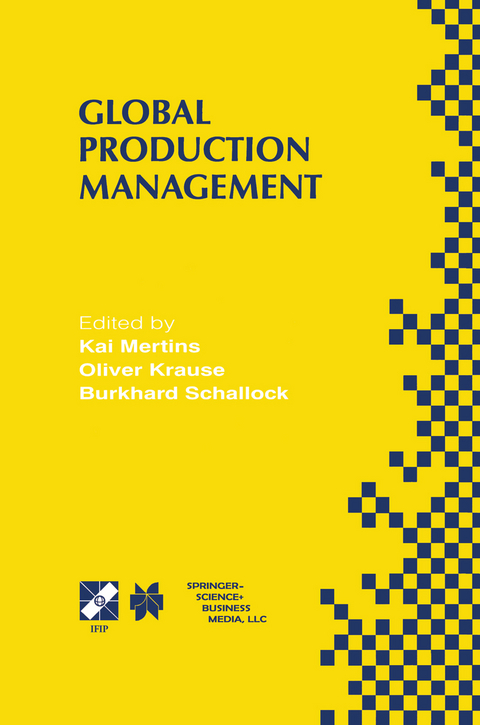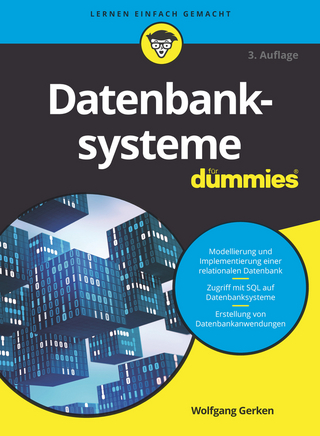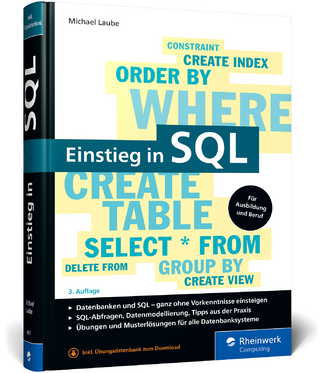
Global Production Management
Springer-Verlag New York Inc.
978-1-4757-5334-9 (ISBN)
Preface. Process Oriented, Performance Headed Strategy; N. Acur, U. Bititci. Flexible job control in heterogeneous production structures; D. Ansorge, C. Effert. Communication Network System for CAD of Functional Decomposition; E. Arai, et al. A hierarchical model of distributed simulation of manufacturing systems; B.R. Babic, G.D. Putnik. Short term production management in the context of cyclic delivery schedules; Z. Bahroun, et al. Floating beds - a flexible bed-management-system in a Swiss acute hospital; N.S. Baschung, et al. The information de-coupling point; A.J.M. Beulens, et al. Dynamics of performance measurement systems; U.S. Bititci, et al. Flexible coordination and information sharing for virtual enterprises in PRODNET; L.M. Camarinha-Matos, H. Afsarmanesh. Partners search and quality-related information exchange in a virtual enterprise; L.M. Camarinha-Matos, et al. Project management interactive learning and project oriented learning organizations; J.L. Cano, et al. ECAS: a collaborative multi-agent system for mixed-model assembly lines programming; M. Caridi. Trends in planning and control systems: APS - ERP integration; M. Caridi, A. Sianesi. Clusters - the basis of competition; A.S. Carrie. Assessing the performances of a market-like model through an experimental comparison with dispatching rules; S. Cavalieri, et al. Integratied electronic commerce: an international laboratory for business-to-business integration; P.K. Chang, et al. Systems innovation tools; K. Cormican, D. O'Sullivan Management and optimization of multiple supply chains; J. Dorn. A neural network approach to dynamic job shop scheduling; T. Eguchi, et al. Supply chain management by using the electronic assistant; J. Eschenbächer, E. Cocquebert. A modellingformalism fordistributed manufacturing simulator; S. Fujii, et al. Statechart and automatons in the supervisory robust control; S. Hadji, J. Favrel. Interorganizational Patterns in collaboration &endash; implications for Danish manufacturing industry; M.W. Hansen, C. Møller. Knowledge management in Europa &endash; results from a European survey; P. Heisig, K. Mertins. The development of a method for integration between different types of simulators; H. Hibino, et al. New generation of information system for the extended enterprise; R. Hieber, R. Alard. Performance measurement for planning and control in SMEs; M. Hudson, et al. A reactive self-organised scheduling based on multi-agent paradigm; T. Kaihara, et al. A quality function deployment model of best practices in customer-supplier relationships; A.K. Kochhar, M.K. Saeed. Performance management; O. Krause, K. Mertins. The re-configurable enterprise &endash; dynamic behaviour in manufacturing systems; H. Kühnle, D. Markfort. CODA &endash; Communication diagnosis; H. Kühnle, S. Mertens. Challenge information logistics in decentralised structures; H. Kühnle, K.-H. Sternemann. Tool for the evaluation of cooperations for product development between SMEs; H. Kühnle, G. Wagenhaus. Supply chain management with a strategic modelling and simulation tool for virtual supplies; H. Laurikkala, E. Pajarre. How can simulation help in supply chain development?; J.-M. Lehtonen, J. Holmström. Concepts & tools for manufacturing planning, control and performance management; H. Lengning. Integration of modeling and simulation of a production system using generalised stochastic petri nets; V.I.N. Leopoulos, et al. Development of planning and scheduling reference models using thearis method & toolset; D. Little, et al.
| Erscheint lt. Verlag | 13.2.2013 |
|---|---|
| Reihe/Serie | IFIP International Federation for Information Processing ; 24 |
| Zusatzinfo | XII, 584 p. |
| Verlagsort | New York, NY |
| Sprache | englisch |
| Maße | 155 x 235 mm |
| Themenwelt | Mathematik / Informatik ► Informatik ► Datenbanken |
| Naturwissenschaften ► Chemie ► Technische Chemie | |
| Technik ► Maschinenbau | |
| Wirtschaft ► Betriebswirtschaft / Management ► Logistik / Produktion | |
| Wirtschaft ► Betriebswirtschaft / Management ► Unternehmensführung / Management | |
| ISBN-10 | 1-4757-5334-9 / 1475753349 |
| ISBN-13 | 978-1-4757-5334-9 / 9781475753349 |
| Zustand | Neuware |
| Haben Sie eine Frage zum Produkt? |
aus dem Bereich


